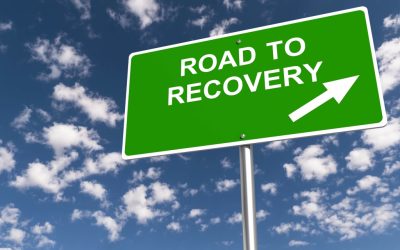Examination of Dosing of Antipsychotic Drugs for Relapse Prevention in Patients With Stable Schizophrenia: A Meta-analysis Psychiatry and Behavioral Health JAMA Psychiatry
We also screened the reference lists of included studies, previous reviews,7,12,13 and a Cochrane protocol on antipsychotic dose reduction.14 We contacted all authors or pharmaceutical companies https://ecosoberhouse.com/ for missing data. The primary outcome was relapse as defined by the original authors. Data on drug-related adverse events vs an exacerbation of schizophrenia were preferred whenever available.
- Putting a relapse prevention plan in place during your addiction treatment in New York can reduce your risk of suffering a relapse once you have left the treatment and rehabilitation facility.
- Mindfulness-based Relapse Prevention (MBRP) appears to be as helpful as standard RP; more research is needed to determine whether MBRP offers greater benefit than standard RP.
In addition to establishing a relapse prevention plan, individuals with a substance use disorder should have a treatment plan in place. Treatment could include individual therapy, group therapy, such as AA meetings, and/or psychiatry, said Gottlich. “There should always be a plan and skills in place,” Gottlich said. Once you’ve made your relapse prevention plan, share it with friends, family, and the people you live with, so they can provide support, but also remove triggers from the home.
How to Manage Cravings
Given these statistics, it’s easy to apply the second and third steps to a career setback. If you turn over the disappointment to a higher power and have faith that another opportunity will arise, then relapse is less likely to occur. If you discuss the problem in a group, you will receive support and learn from the similar experiences of other people. Drug addiction can start early, and unfortunately, it begins younger and younger, with around 5 percent of high school seniors reporting that they have tried methamphetamines at least once.
- Good treatment programs recognize the relapse process and teach people workable exit strategies from such experiences.
- As part of their all-or-nothing thinking, they assume that change means they must change everything in their lives.
- If an individual remains in mental relapse long enough without the necessary coping skills, clinical experience has shown they are more likely to turn to drugs or alcohol just to escape their turmoil.
- It might mean entering, or returning to, a treatment program; starting, or upping the intensity of, individual or group therapy; and/or joining a peer support group.
Many support group options exist outside of the 12-step model, so don’t let bad experiences stand in the way of your recovery. Explore new options to connect with new people who understand the struggles of addiction. Creating a list of warning signs can give a person more insight into their relapse. Sharing the list with the treatment team can provide them with needed information to prevent relapse in the patient. Regardless, it is important to consider the following items when creating a relapse prevention plan.
Cognitive Behavioural model of relapse
Bargaining also can take the form of switching one addictive substance for another. By the time most individuals seek help, they have already tried to quit on their own and they are looking for a better solution. This article offers a practical approach to relapse prevention that works well in both individual and group therapy. Relapse prevention focuses on building the awareness necessary to recognize the early stages of relapse.

Think about what’s driving you to quit, such as rebuilding damaged relationships, keeping a job, or getting healthy again. The purpose of this rule is to remind individuals not to resist or sabotage change by insisting that they do recovery their way. A simple test of whether a person is bending the rules is if they look for loopholes in recovery.
How Do You Make A Relapse Prevention Plan?
Getting appropriate treatment for co-occurring mental health and medical conditions can also help reduce your risk of relapse. relapse prevention therapy (RPT) was developed over 40 years ago by G. This approach helps people in recovery anticipate the factors that might cause them to engage in their addictive behavior again—and to plan ahead for these situations.
- To play the tape through, you must play out what will happen in your mind until the very end.
- A relapse prevention plan works best when you do it under a therapist or counselor’s supervision.
- The information we provide is not intended to be a substitute for professional medical advice, diagnosis or treatment.
- Attending or resuming attending meetings of some form of mutual support group can be extremely valuable immediately after a lapse or relapse.

